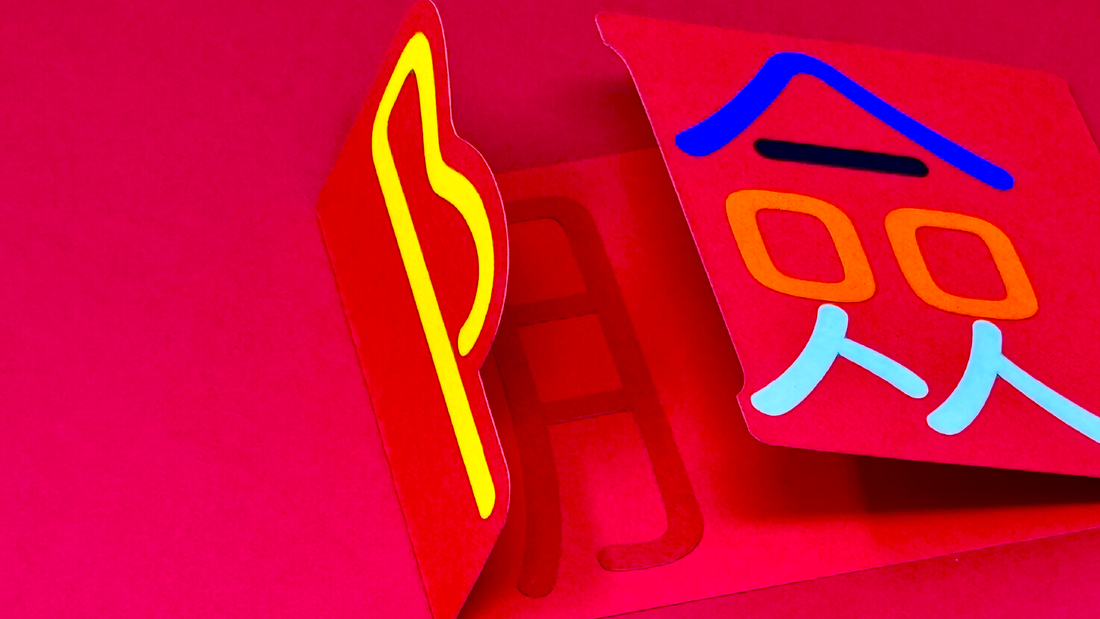
Good Characters Announces the Chinese Character of the Year 2024: 險 (xiǎn)
Good Characters, a California-based consultancy specializing in Chinese naming, has named 險 (xiǎn, pronounced shee-en) as the Chinese Character of the Year for 2024.
More: (1) PDF (2) Slides (3) YouTube
Why 險 (xiǎn) Was Chosen
險 embodies interconnected meanings—risk, challenge, precariousness, danger, and close calls, such as narrowly avoiding disaster. This multifaceted character perfectly captures the defining events of 2024—a year shaped by political divides, monumental challenges, brushes with catastrophe, and global instability. Here’s how 險 reflects the critical moments of 2024:
1. Risk: Political Divisions in the U.S.
險 highlights the uncertainty where outcomes teeter between win and lose, progress and regression. The deeply polarized 2024 U.S. presidential election exemplified this precarious state. Each side viewed the other as an existential threat, creating a climate of 險境 (xiǎn jìng, pronounced shee-en jeeng), or perilous territory. These divisions intensified political distrust, exposing the fragility of the nation’s unity.
2. Steep Challenges: Trump’s Return
The character 險 also symbolizes steep and precarious challenges, as in 險阻 (xiǎn zǔ, pronounced shee-en zoo), or steep obstacles. President Donald Trump’s political resurgence was marked by formidable hurdles—legal battles, intense public scrutiny, and widespread skepticism. Despite these overwhelming odds, he won the election.
3. Danger: Escalating Global Conflicts
Globally, 2024 was a year of heightened uncertainty and danger. Foreign wars in Europe and the Middle East underscored 兵險 (bīng xiǎn, pronounced bing shee-en), or military peril, posing threats to both regional and global stability. These crises highlighted the precarious state of international relations.
The Visual Symbolism of 險
The structure of 險 offers deeper symbolic resonance for 2024. The left radical, 阝, resembles an ear (耳, ěr), while the right side resembles a face (臉, liǎn). This imagery connects strikingly to the assassination attempt on Trump, during which his ear was injured. This literal representation of 險遭不測 (xiǎn zāo bù cè, pronounced shee-en zao boo tsuh), or a narrow escape from death, reflects the precariousness of the year and the resilience required to navigate it.
Conclusion: Precarious Challenges and Resilience
險, the Chinese Character of the Year for 2024, encapsulates the profound risks, challenges, and narrow escapes that defined a tumultuous year. From deepening political divisions in the U.S. to escalating global conflicts, and from Trump’s literal brush with death to his precarious political return, 險 is a fitting emblem for a year marked by 險象環生 (xiǎnxiàng huán shēng, pronounced shee-en shyang hwan shung)—a constant cycle of challenges and risks.
As we look toward 2025, 險 serves as a reminder of the resilience, courage, and determination needed to turn peril into progress. The concept of 化險為夷 (huà xiǎn wéi yí, pronounced hwa shee-en way yee), transforming danger into safety, challenges us to face uncertainty with vigilance, approach steep obstacles with resolve, and find hope even in precarious times.
Chinese Character of the Year 2024
The Good Characters Chinese Character of the Year 2024 is 險 (xiǎn), representing risk, challenge, precariousness, danger, and close calls—such as narrowly avoiding disaster—which we see as the defining theme of 2024.
險 (xiǎn): thrill (驚險), risk (風險), danger (危險), and close call (好險).
A Brief History
In 1995, the Japanese Kanji Proficiency Society began its annual announcement of the kanji of the year. Kanji are the Chinese characters adapted for the Japanese language. Kanji quite literally translates to kan-: Han Chinese and -ji: characters.
December 12 was designated Kanji Day, the date the society announces its annual Kanji of the Year, because 1212 can be read as いい字一字 (ii ji ichi ji), literally good character one character, meaning “one good character” in Japanese.
Eleven years later, in 2006, China began the tradition of announcing the Chinese Character of the Year. Subsequently, Taiwan, Malaysia, Singapore, Macao, and eventually Hong Kong each started to select their own Chinese character of the year. The Character of the Year serves a similar purpose to the Word of the Year as announced by prominent organizations such as the Oxford English Dictionary, Merriam-Webster, and the American Dialect Society. Much like the Word of the Year encapsulates key societal trends, ideas, and public sentiments, the Character of the Year is chosen to reflect the significant events, thoughts, and prevailing attitudes of the year through a single Chinese character.
In 2017, after another 11 years, Good Characters, as specialists in Chinese language brand naming, decided it would be fitting to designate a Chinese character of the year from an American perspective.
“We thought it would be fitting to have a Chinese character of the year from the American perspective,” said Andy Chuang, Chinese naming expert and founder of Good Characters. “After all, Chinese is the third most-spoken language at home in the United States according to the U.S. Census Bureau.”
By introducing the Chinese Character of the Year from an American viewpoint, Good Characters not only highlights the relevance of the Chinese language in the U.S. but also promotes the influence of American perspectives within the Chinese-speaking world, enhancing the dynamic interplay of ideas and viewpoints across these diverse cultures.
Previous Chinese Characters of the Year by Good Characters
You can view and download the PDF featuring the Characters of the Year since 2017.
The Good Characters Chinese Character of the Year 2023 was 生 (shēng), symbolizing birth and growth, and distinctly echoing the emergence and impact of generative (生成式, shēng chéng shì) AI, a defining technological advancement of the year.
The Good Characters Chinese Character of the Year 2022 was 滅 (miè, pronounced mieh), meaning to extinguish, to exterminate, or to perish.
Discover why 漲 (zhǎng, pronounced jahng), meaning to rise or to go upward, was chosen as the Good Characters Chinese Character of the Year 2021. This selection reflects significant trends and events of that year, offering a unique lens through which to view the cultural and societal shifts of the time. To delve into the story behind this intriguing choice, read the full analysis.
Explore the significance of 抗 (kàng, pronounced kahng)—embodying resistance, defiance, and the spirit of combat—chosen as the Good Characters Chinese Character of the Year 2020. This character captures the essence of a year marked by challenges and the global populace’s resilience. To understand the depth and context of this powerful symbol, delve into the full story.
The Good Characters Chinese Character of the Year 2020 was 抗 (kàng, pronounced kahng), meaning anti-, resist, fight, combat, disobey, defy, or refuse.
The Good Characters Chinese Character of the Year 2019 was 亂 (luàn, pronounced lwahn).
The Good Characters Chinese Character of the Year 2018 was 戰 (zhàn, pronounced jahn).
The Good Characters Chinese Character of the Year 2017 was 狂 (kuáng, pronounced kwahng).
###
